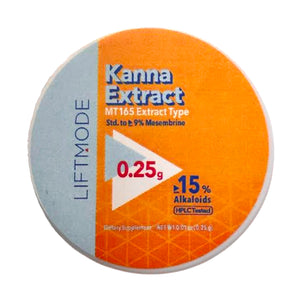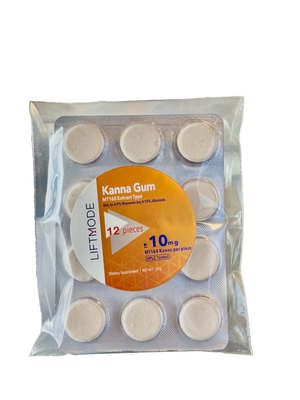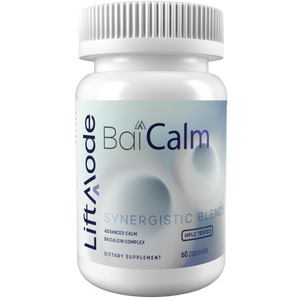Methylsulfonylmethane (MSM) is an organic sulfur and product of dimethylsulfide (DMSO2) oxidation. It is found in plants and naturally produced in animals. In humans, small amounts of MSM are present in the cerebrospinal fluid and plasma, in the adrenal cortex, urine, and breast milk.
[1]
MSM provides a source of sulfur, a mineral that is essential to the production of methionine, an amino acid involved in several body processes.
![]()
MSM is a well-recognized and researched nutraceutical due to its beneficial effects on musculoskeletal, gastrointestinal and immune health. It is often combined with chondroitin and glucosamine and is used to reduce swelling and inflammation of the joints, enhance physical performance, joint mobility, and muscle recovery, as well as support allergies.
In this article, we will be covering the top questions regarding uses of MSM, i.e. common dosage, side effects and important interactions. Take a read through this great article about how to take MSM.
How Much Methylsulfonylmethane (MSM) to Take?
Since there is no recommended daily allowance of sulfur in the medical literature, there is no recognized recommended dosage for MSM supplements. Dosage will vary on the state of your health and on the purpose of use. Please consult your doctor to determine a dose that is appropriate for you.
In terms of general dosage, studies have shown MSM to be well-tolerated in small and larger doses.
- One study on a group of 112 people found MSM to be safe in doses of 500 mg taken 3 times per day during a period of 3 months, without any adverse effects. [2]
- Another study found doses as high 4 grams divided into several doses taken throughout the day to be well tolerated.[3]
How to take Methylsulfonylmethane (MSM) Supplements?
MSM is available as a dietary supplement in various forms including a powder, liquid eye drops, gel or cream form and crystals. MSM is often added to other joint-relief supplements and in creams to reduce irritation and inflammation.
Our Liftmode MSM is sold as a powder, which is thought to be the most bioavailable form. MSM can be taken with or after meals.
Methylsulfonylmethane (MSM) Side Effects and Interactions
MSM is generally considered safe and effective for adults.
[4] The FDA has designated MSM as Generally Recognized as Safe (GRAS) in doses of up to 4.8 grams per day.
[5]
Moreover, toxicity reports on rat models indicated MSM to have no cytotoxic effects, even at 5 to 7 times the recommended dosage for humans.
[6] However, MSM can cause mild side effects which include bloating, nausea and skin allergies in some people.
[7]
In terms of interactions, there is no published data indicating any interaction between MSM with drugs or herbal supplements. To stay on the safe side, consult your doctor before trying MSM.
Finally, there isn’t enough information regarding the use of MSM during pregnancy and breast-feeding, and should therefore be avoided.
![]() Conclusion: Side Effects of MSM
Conclusion: Side Effects of MSM
To sum it up, MSM is a well-studied supplement with many health benefits. In fact, studies have shown MSM to reduce swelling, improve immune function as well as enhance muscle recovery and athletic performance. It is also great as a digestive aid and to support joint health.
Additionally, MSM appears to be safe even in higher doses, with mild side effects and no reported interactions.
MSM is best absorbed in powdered form and can be taken with meals. MSM should not be used by pregnant or breastfeeding women, nor by individuals with underlying medical conditions. Please consult your doctor prior to consuming this product.
References
[1] Virginia L. Richmond. (1986). Incorporation of methylsulfonylmethane sulfur into guinea pig serum proteins, Life Sciences, Volume 39, Issue 3,1986, Pages 263-268, ISSN 0024-3205,https://doi.org/10.1016/0024 3205(86)90540-0.
[2] Usha PR, Naidu MU. Randomised, Double-Blind, Parallel, Placebo-Controlled Study of Oral Glucosamine, Methylsulfonylmethane and their Combination in Osteoarthritis. Clin Drug Investig. 2004;24(6):353-363. doi:10.2165/00044011-200424060-00005
[3] Butawan, M., Benjamin, R. L., & Bloomer, R. J. (2017). Methylsulfonylmethane: Applications and Safety of a Novel Dietary Supplement. Nutrients, 9(3), 290. https://doi.org/10.3390/nu9030290
[4] Butawan, M., Benjamin, R. L., & Bloomer, R. J. (2017). Methylsulfonylmethane: Applications and Safety of a Novel Dietary Supplement.
Nutrients,
9(3), 290. https://doi.org/10.3390/nu9030290
[5] Butawan, M., Benjamin, R. L., & Bloomer, R. J. (2017). Methylsulfonylmethane: Applications and Safety of a Novel Dietary Supplement.
Nutrients,
9(3), 290. https://doi.org/10.3390/nu9030290
[6] Horváth K, Noker PE, Somfai-Relle S, Glávits R, Financsek I, Schauss AG. Toxicity of methylfulfonylmethane in rats. Food Chem Toxicol. 2002;40(10):1459-1462.12387309
[7] Kalman, D. S., Feldman, S., Scheinberg, A. R., Krieger, D. R., & Bloomer, R. J. (2012).
Influence of methylsulfonylmethane on markers of exercise recovery and performance in healthy men: a pilot study. Journal of the International Society of Sports Nutrition, 9(1), 46. https://doi.org/10.1186/1550-2783-9-46




